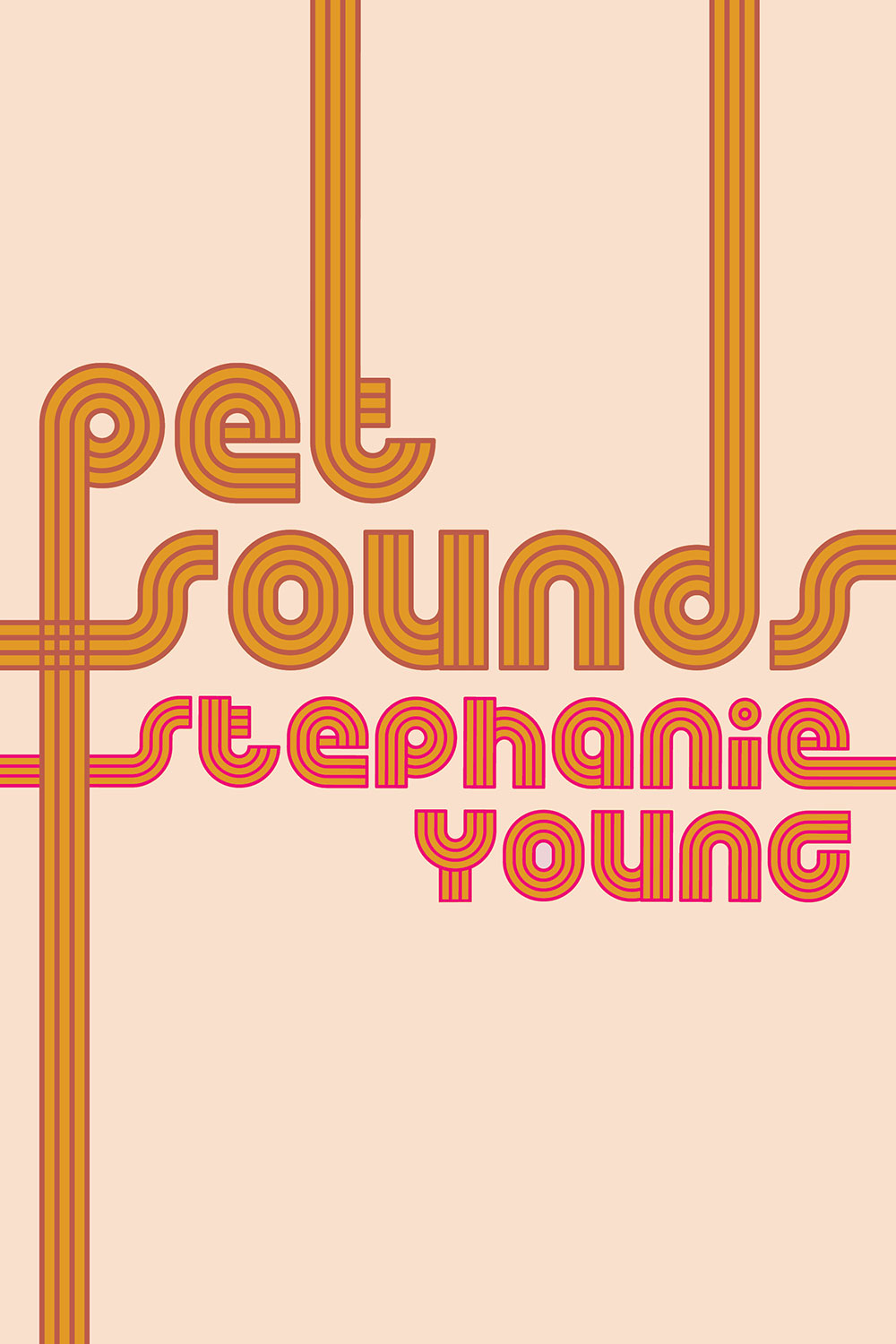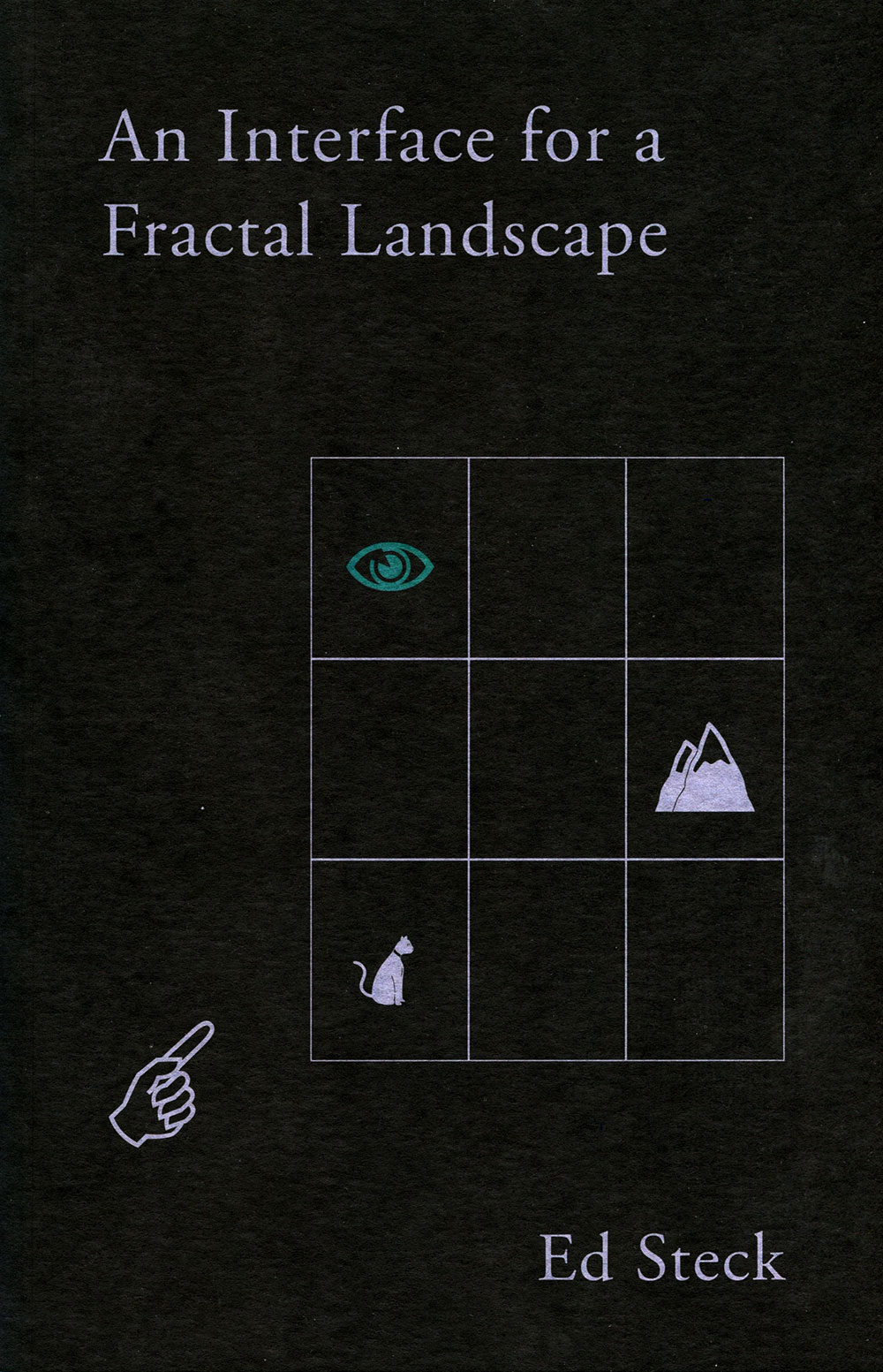Steven Zultanski Reviews Five New Experimental Poetry Collections
New books by Ben Fama, Stephanie Young, Robert Fitterman, Miyó Vestrini and Ed Steck wonder about language, politics and love
New books by Ben Fama, Stephanie Young, Robert Fitterman, Miyó Vestrini and Ed Steck wonder about language, politics and love


Ben Fama, Deathwish (Newest York Arts Press)
The distant, cool (almost cold) tone of Ben Fama’s poetry emulates an illusion produced by internet culture and ubiquitous corporate media: that consumer desire has been elevated into desire as such. Fama’s first book, Fantasy (2017), played chicken with what it was critiquing – high fashion, celebrity worship, the gig economy, posting – getting as close as possible to its subject matter at the risk of becoming identical with it, in order to find emotional nuance in cultural logics that appear monolithic and empty. Deathwish furthers this project, but with more vulnerability. Fama still lives in a world of commodities, but this time he also celebrates experiences that are, for better or worse, more than transactions: addiction, sadness, BDSM and friendship.
Though the book opens with a 14-page, all-caps list of celebrities in no discernable order, it quickly shifts gears into short-lined lyric poems concerning substance abuse, enthusiasm for sexual (and commercial) submission and lightly goth melancholia. In lines that coyly hide their affective complexity in declarative flatness, Fama arranges snippets of personal history into impersonal reflections on how conspicuous consumption and financial precarity shape relationships. There’s no liberation from the economic in Deathwish, but it does suggest the possibility of counter-hegemonic communities. And in the book’s most surprising, optimistic moment, Fama even alludes to hippie idealism: ‘let’s all get together / obstruct our various drives / that seem so clear / when each is alone / sunsets make me sad to die / love forever changes.’

Stephanie Young, Pet Sounds (Nightboat Books)
It’s deceptively easy to list the things that Stephanie Young’s new collection is ‘about’: love, gentrification, gendered identification with classic rock, the way capitalism structures the family. But the poems in Pet Sounds slide so agilely from scene to scene that each merges with the next, and none appear autonomous. The book opens with two shorter poems that introduce its themes from a wide angle: the first, ‘Congenital’, frames a relationship as inherently contaminated by capital (‘I feel your presence in the joint account / your expenditures and wages I touch them’), and the second, ‘Ave I Via’, rewrites the opening of Dante’s Inferno (1320) in terms of property value (‘I came to in the neighborhood / coveted for its central location, cultural diversity, great climate’).
Writing that so explicitly links love to the structures that define it could quickly become paranoid, as if love itself were merely a product of deterministic forces. But Young artfully represents the connections between economics and feeling as absolutely real without being absolutely causal. The title poem, which makes up most of the collection, moves through intimate anecdotes and family histories, continuously filtering these stories through reflections on gender and culture (including terrific tangents on Van Morrison and the Grateful Dead). In this way, Pet Sounds posits intellectual work – and intellectual conversation – as equally intimate as sex or domestic care, so that Young’s analysis of her relationship’s place in history becomes the motor, and maybe the loveliest part, of this love poem.

Robert Fitterman, Rob’s Word Shop (Ugly Duckling Presse)
In 2010, Robert Fitterman opened a shop in the front window of the Bowery Poetry Club in New York, where he sold words and letters for a dollar each. The customers had a few choices as to how their words were written: pen or sharpie, portrait or landscape, cursive or print, etc.. Their deliberations were recorded, and Rob’s Word Shop is made up of the subsequent transcriptions. In his performance as a shop owner, Fitterman affected a lighthearted veneer of professionalism (he wore a suit, kept a ledger and had an official stamp), and most of the customers are happy to go along with the act: they ham it up, earnestly mulling over their decisions about word choice and handwriting.
The project is not so much a critique of consumerism, but a parodic playacting of shopping and salespersonship. Though there is no naive suggestion that language is an arena of freedom, the idea that words can be bought and sold clearly delights the customers in its absurdity (‘you got your money’s worth.’ ‘I’m really gonna leave a satisfied customer.’): there’s a shared tacit acknowledgement that expression can’t be completely dehumanized by profit. Against the cynicism of businesses pretending to be friendly as an excuse to push products, Rob’s Word Shop documents friends (it’s clear that Fitterman knows most of his customers) pretending to be participating in a business as an excuse to hang out. The book finds its literariness in banter, even (and especially) at its most clumsy, halting moments, when a speaker stumbles over a phrase, finding that the word they’re looking for is eluding them.

Miyó Vestrini, Some Poems of Miyó Vestrini (Kenning Editions)
I’ve never read anything quite like the late Venezuelan writer Miyó Vestrini’s poems: they obsessively sing about death. They aren’t simply obsessed with individual mortality, but with the potential for radical nothingness at the heart of the social: anyone has the agency to remove themselves from the world of the living, leaving an absence that can’t be filled or reconciled. This selection of works from 1960 through 1990, Some Poems of Miyó Vestrini – edited by Faride Mereb and Elisa Maggi, and translated by Anne Boyer and Cassandra Gillig – is the first volume of Vestrini’s poetry to appear in English. She wrote in fragmentary, imagistic lines, mixing quotidian scenes with their negations: ‘I think about Venice, / because of the blinds that go up and down / a sound like no other. / More than the nauseating rain, I am shaken by things I remember, / shit things.’
Vestrini’s writing has a clarity and directness that cuts through metaphysical obscurity: death is not mystified or transcendent. Rather, the poems embrace death as an aspect of daily life: both a mundane fact that follows one into every situation (sometimes terribly, sometimes comically), and a secret weapon that one can only use once. For Vestrini, death does not only lord power over the individual, it can also be an exercise of power against a corrupt and patriarchal social order, as in ‘Brave Citizen’, which opens: ‘Give me, lord, / an angry death. / A death as offensive / as those I’ve offended.’

Ed Steck, An Interface for a Fractal Landscape (Ugly Duckling Presse)
Composed in humorously dry descriptions of non-spaces and non-events, An Interface for a Fractal Landscape wrenches the abstraction of programming language and technical jargon into a narrative structure. Taking place after human extinction, much of the book purports to be the archived notebook of a visitor to the fractal landscape, a continuously fluctuating digital environment that persists and perhaps ‘lives’ on without us. As the narrator wanders through the debris of this world, parts of their body (and even their perspective) detach and move autonomously, merging with their surroundings. The sole other creature in the landscape is the glitchy archived memory of a cat: as if the only available companionship in the absence of nature or humanity is a decaying meme.
While much of the material is obtuse and, at times, the textual noise becomes unreadable in any normative sense, Steck fits each formally opaque element (cryptic diagrams, fragments of code, hints of apocalyptic backstory) into an open-ended but surprisingly clear narrative whole. The deadpan prose is not merely a mannerism: An Interface for a Fractal Landscape suggests that digital experience is almost ontologically lonely. Against utopian fantasies of hyper-connectivities (both digital and ecological), which might dissolve the egoic individual into communitarian webs, Steck presents total immersion as an even more intense isolation: networked life both liberates the body from its physical limits and sinks it into the paltry remainder of consciousness. Seriously ambitious in thought and form, this book is a real accomplishment.














